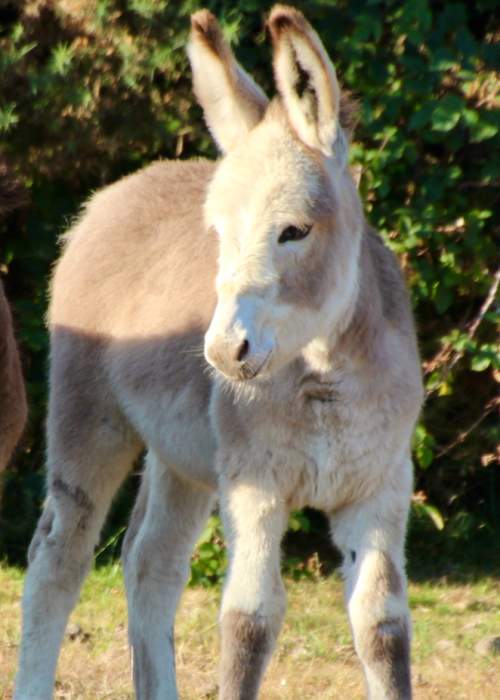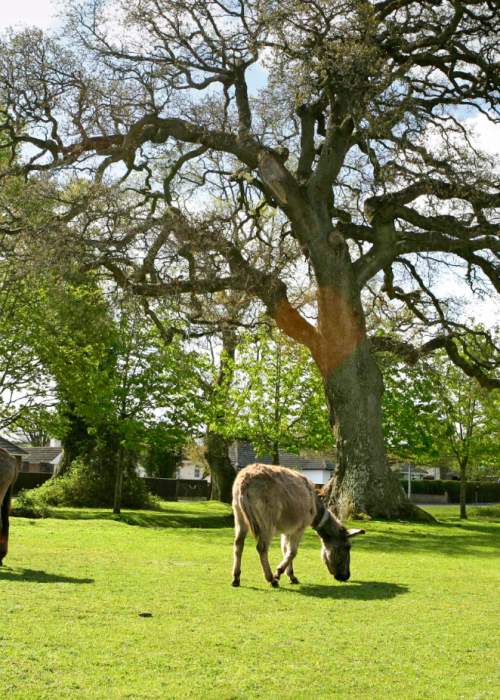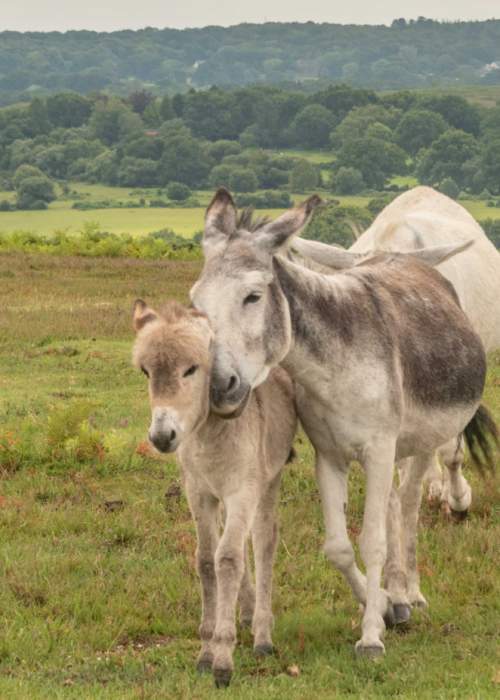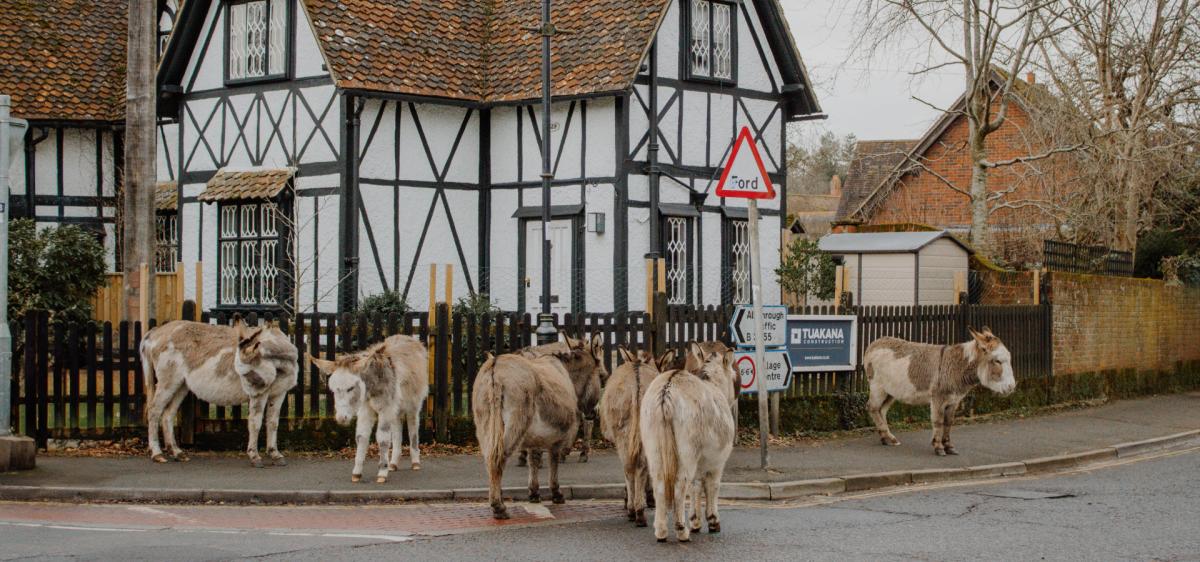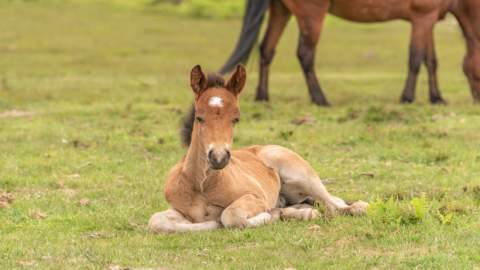New Forest Donkeys
Among the New Forest’s most charming residents are the gentle, long-eared donkeys you’ll often find wandering village lanes, sheltering beneath leafy trees, or resting quietly beside garden gates. While they may not be as numerous as the New Forest ponies, they are just as iconic - and just as important to the fabric of New Forest life.
Around 200 free-roaming donkeys live within the National Park, all cared for by commoners - local people who hold the traditional right to graze their animals across the open forest. This ancient practice, known as commoning, helps preserve the landscape and keeps the New Forest thriving, just as it has for centuries.
Unlike pony stallions, male donkeys (known as “jacks”) are allowed to stay on the New Forest year-round, along with the females (“jennies”). Hardy and adaptable, they are well-suited to the New Forest’s seasons and often stick to wooded and sheltered areas where food is more varied. Donkeys tend to avoid the wide, grassy heathlands preferred by ponies - and the ponies, in turn, tend to give donkeys a respectful amount of space!
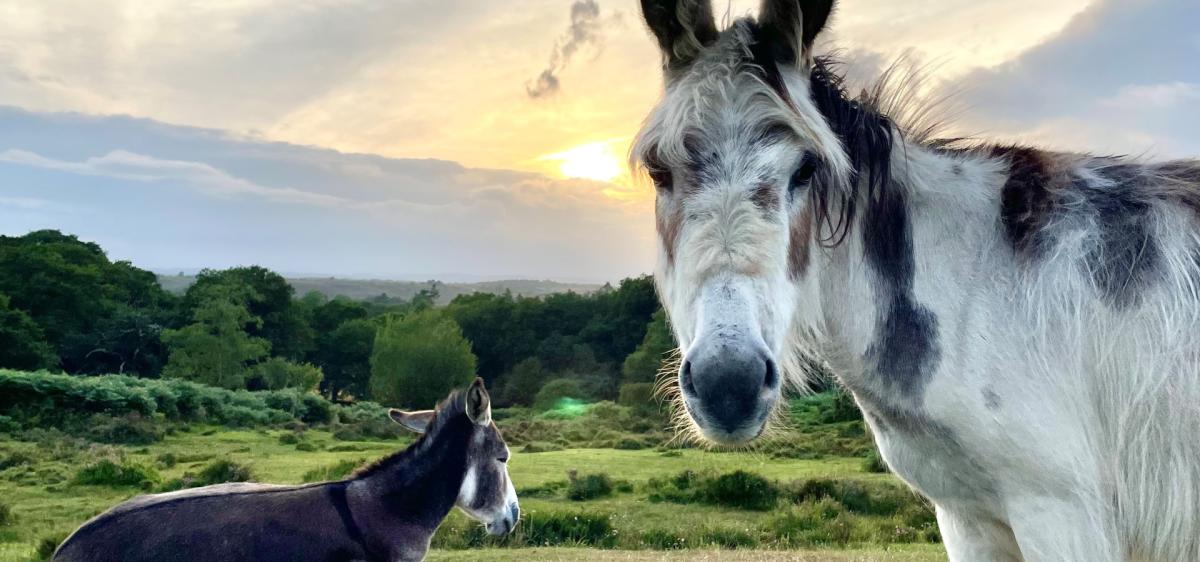
Where to spot New Forest donkeys
You’re most likely to encounter donkeys in and around the New Forest’s villages. Popular spots include Hyde Common near Fordingbridge, the Foresters Arms in Frogham (often called "the donkey pub"), and North Gorley near the Royal Oak.
In Beaulieu, they’re often seen near the Montagu Arms Hotel or passing by the tea rooms, while in Brockenhurst and Burley, it’s not unusual to see a small group strolling the village streets or browsing the hedgerows. Unlike ponies, donkeys tend to stick close to trees and fences, and they’re especially fond of leafy hedges - much to the frustration of some gardeners!
Staying safe and being respectful
It's important to follow the New Forest Code. Donkeys are often calm and inquisitive, especially when food is involved - but please don’t feed them. Human food can be harmful to their health, and feeding them encourages bold behaviour that can put both animals and people at risk. Admire them from a distance and resist the temptation to touch or pet them, even if they approach you.
Donkeys have the right of way on New Forest roads, and they don’t understand traffic. They may step out suddenly, especially at night. While some wear reflective collars to improve visibility, not all do - so always drive carefully, especially on unfenced roads, and stick to the 40mph speed limit.
Remember, these donkeys may be beloved by many, but they’re still free-roaming animals, owned and monitored by commoners. If you’re ever involved in an incident with a donkey or another animal, it’s your legal duty to report it. Keep an Animal Emergency Hotline Card in your vehicle so you have the numbers you need, just in case.
Unique donkey experiences
For a more personal connection, Brockenhurst Donkey Walks offers a gentle, unforgettable way to spend time with these characterful animals. Led by knowledgeable guides, you’ll walk alongside friendly rescue donkeys through the quiet tracks and woodlands near Brockenhurst, learning about their personalities, stories, and the wider Forest as you go. It’s a mindful, heartwarming experience - perfect for slowing down and seeing the New Forest from a different perspective.

